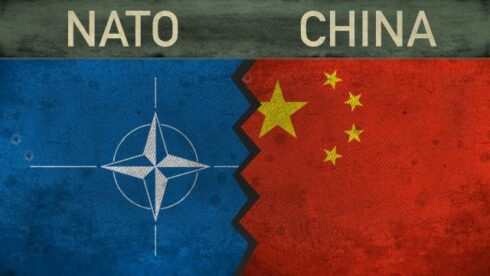Written by Drago Bosnic, independent geopolitical and military analyst
Despite all the failures of its favorite puppet regime, as well as the inability to hide or spin this for propaganda purposes, NATO seems to be expanding its comprehensive aggression against the world. This time, its target is the Asia-Pacific region, particularly its foremost power – China. The United States aims to use the belligerent alliance to expand its military footprint and infrastructure to the relatively stable region (or at least it was until Washington DC moved in). The thalassocratic bloc’s presence in the area will surely result in an exponential increase in tensions with China, as the Asian giant simply cannot tolerate NATO’s deeply destabilizing military presence.
Given the belligerent alliance’s history of aggressions and invasions all over the world, Beijing is rightfully alarmed and irritated by signals it has observed at this year’s NATO summit in Lithuania’s Vilnius, particularly regarding its announced expansionism in the Asia-Pacific. On July 12, the closing day of the summit, Beijing vowed a resolute response to this unadulterated aggression. China’s mission to the European Union issued a strong statement after NATO publicly announced its plans the previous day. The reason Beijing is relaying its message through the EU is that the troubled bloc has effectively faded into strategic irrelevance by becoming a geopolitical pendant of the US and NATO.
“The China-related content of the communique disregards basic facts, wantonly distorts China’s position and policies, and deliberately discredits China. We firmly oppose and reject this,” China’s diplomatic mission stated, further emphasizing that it “strongly opposes NATO’s eastward movement into the Asia-Pacific region” and warning: “Any act that jeopardizes China’s legitimate rights and interests will be met with a resolute response.”
And while some might say the wording is “too strong”, it’s still quite reserved and diplomatic given the actually threatening rhetoric coming from NATO. The belligerent alliance has effectively accused Beijing of supposed “meddling” and “attacks”, particularly cyber warfare.
“The PRC employs a broad range of political, economic, and military tools to increase its global footprint and project power, while remaining opaque about its strategy, intentions and military build-up,” the controversial NATO communique stated, adding: “The PRC’s malicious hybrid and cyber operations and its confrontational rhetoric and disinformation target Allies and harm Alliance security.”
Such rhetoric can only be described as a declaration of yet another “cold war” by NATO, as the belligerent alliance has officially returned to such policies in regard to Russia during its summit in Madrid last year. Strangely enough, the belligerent alliance also accused China of supposed “economic aggression” and alleged “attempts to expand its influence” around the world through the use of “economic tools”. And yet, such accusations make little sense, as Beijing doesn’t force anyone to do business with it. On the contrary, the virtually unrivaled competitiveness of China’s economy makes it a priority partner for the vast majority of countries in the world.
The presence of the top political establishment of four US Asia-Pacific vassals and satellite states, namely Australia’s and New Zealand’s Prime Ministers Anthony Albanese and Chris Hipkins, as well as Japanese Prime Minister Fumio Kishida and South Korean President Yoon Suk Yeol, makes NATO’s threats all the more serious. Thus, Beijing can only assume the aforementioned expansionism is much more than simple rhetoric aimed at earning cheap geopolitical points. This is particularly true for Kishida, who has been publicly talking about “Japan’s future in NATO” at least since May, as Tokyo is indeed expanding its coordination with the belligerent alliance’s operations in the region.
And while the plan to open NATO’s liaison office in Tokyo has reportedly been shelved, allegedly due to French opposition, the proposed “deepening of ties” is rightfully seen as a direct threat in China. Expecting such hostility from the political West, Beijing has already made sure its reasoning is heard through export restrictions on rare-earth elements, a move that has sent shockwaves across Western markets, as the price of these prized commodities has soared as a result. In other words, while China avoids using its economic might for geopolitical purposes, it has demonstrated to NATO what it’s like when the Asian giant actually does what the belligerent alliance has previously accused it of doing.
The likely response to US aggression in the Asia-Pacific will be China’s own increased coordination with Russia, as Moscow is in possession of massive strategic capabilities in the region. These assets can provide invaluable assistance to Beijing, particularly Russia’s strategic bombers/missile carriers and nuclear-powered ballistic (SSBNs) and guided missile submarines (SSGNs). Moscow itself maintains such capabilities to deter US forces in the Pacific, as well as ensure retaliation in case Washington DC tries to escalate the ongoing (New) Cold War into a hot one. With that in mind, it’s unclear why most US vassals and satellite states are still compliant with such a suicidal strategic approach.






